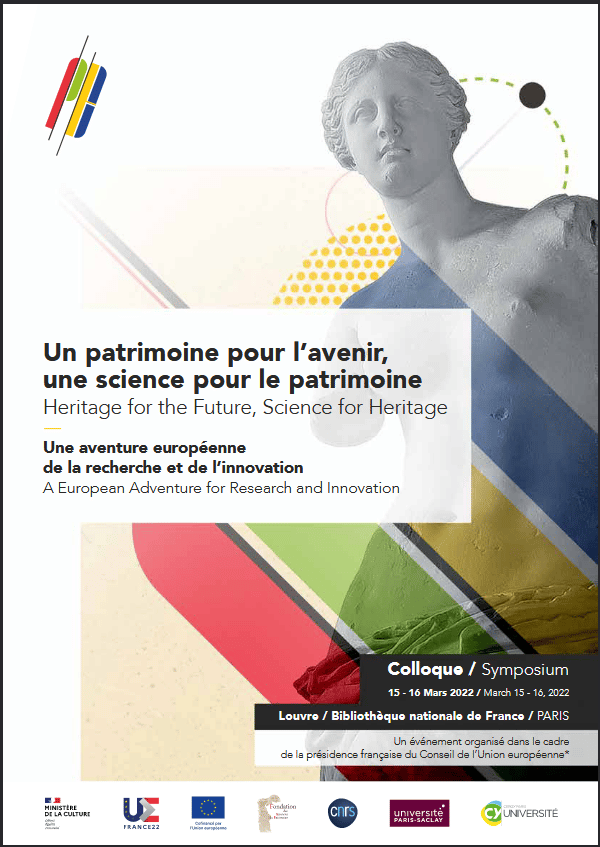The Foundation for Heritage Science has published a Proceedings document of the ‘Heritage for the Future, Science for Heritage’ symposium in Paris, held in March 2022. The aim of the event was to highlight the diversity of heritage science and show how it can help to protect heritage and discuss its central role in society. To make sure all information from plenary sessions, round tables and presentations are available to all in the heritage sector, you can download it now for free.
The publication includes the work carried out by PhD students and researchers but also the initiatives that were undertaken to contribute to the preservation, valorisation, and transmission of cultural heritage. The lengthy document counts 552 pages and can be downloaded here.

“At a time when UNESCO is preparing to celebrate the half-century of the World Heritage Convention, at a time when the war at the gates of Europe is destroying human lives and major cultural assets, raising legitimate emotions everywhere, one can see how much heritage is felt to be a common asset of humanity beyond borders, often hostage to conflicts, but also a source of peace, understanding and great international collaborations”, President of the Foundation for Heritage Science Isabelle Pallot-Frossard wrote in the introduction.
Interested to see how the event itself went? EHT was present in Paris to ask young professionals in the sector about the biggest challenges in heritage according to them.
A quick overview
The publication is ‘divided’ into three parts, starting with an overview of the results from the five plenary sessions. While each session touched upon a different topic, the red thread turned out to be how the heritage sector should take on the current and future challenges it is facing. From the role research plays in adapting heritage to climate change, to the digital transformation of heritage and how to train heritage stakeholders. Information about how cultural heritage and the creative industries can work together was discussed in session 4, while the final words are dedicated to heritage and the New European Bauhaus.
The second part consists of papers that were discussed during the various round tables at the event. With 15 separate chapters with a large range of topics – digital modelling, new technologies, social issues, urban heritage and the role of heritage in education – it holds a wealth of information for researchers, stakeholders and professionals.
The final chapter is a series of shorter articles published on the symposium website to explore the four main themes proposed. The peer-reviewed proposals helped to shape the round tables and the preparation of short articles presented in this section. The papers were not presented at the event itself but were published on the website to illustrate the diversity of topics proposed for the call. These include intangible heritage, contested heritage, conservation, application of digital heritage and much more.
The entire report is available in French or English and reflects the diversity of topics currently being discussed in the field of heritage science in France and Europe. All the presentations of the symposium are also available on the YouTube channel of the Heritage Research Hub.

